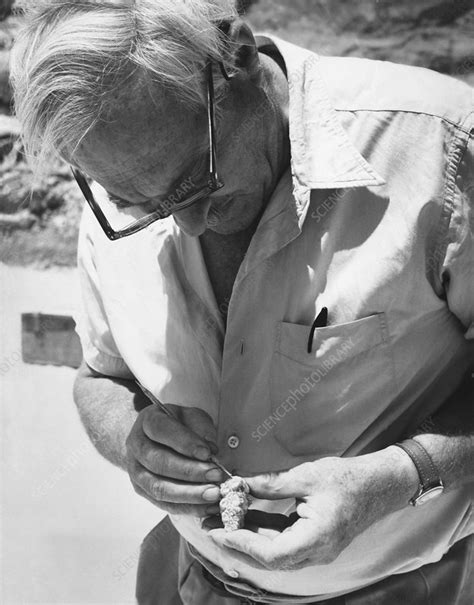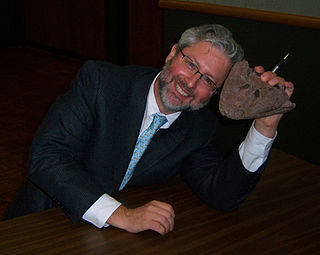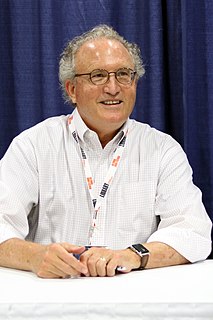A Quote by Wendy Mass
We are here because over billions of years, countless variables fell into place, any of which could have taken another path. We are essentially a beautiful fluke, as are the millions of other species with which we share this planet. Our cells are composed of atoms and dust particles from distant galaxies, and from the billions of living organisms that inhabited this planet before us.
Related Quotes
Each galaxy, star, or person is the temporary owner of particles that have passed through the births and deaths of entities across vast reaches of time and space. The particles that make us have traveled billions of years across the universe; long after we and our planet are gone, they will be a part of other worlds.
Evolutionary biologists often appeal to parsimony when they seek to explain why organisms "match" with respect to a given trait. For example, why do almost all the organisms that are alive today on our planet use the same genetic code? If they share a common ancestor, the code could have evolved just once and then been inherited from the most recent common ancestor that present organisms share. On the other hand, if organisms in different species share no common ancestors, the code must have evolved repeatedly.
I don't know if most people have truly taken on board what this says about our place in the natural world. It doesn't mean that humans are dominating the Earth, ruling over all of nature. In fact, it is a reminder that we are only a tiny part of nature, at the mercy of a system whose operations predate us by billions of years, and will continue billions of years after we're gone.
If we ever establish contact with intelligent aliens living on a planet around a distant star ... They would be made of similar atoms to us. They could trace their origins back to the big bang 13.7 billion years ago, and they would share with us the universe's future. However, the surest common culture would be mathematics.
I never said it. Honest. Oh, I said there are maybe 100 billion galaxies and 10 billion trillion stars. It's hard to talk about the Cosmos without using big numbers. I said "billion" many times on the Cosmos television series, which was seen by a great many people. But I never said "billions and billions." For one thing, it's too imprecise. How many billions are "billions and billions"? A few billion? Twenty billion? A hundred billion? "Billions and billions" is pretty vague. When we reconfigured and updated the series, I checked-and sure enough, I never said it.
Reading... there have been millions and billions and billions and gazillions of people that have lived before all of us. There's no new problem you could have - with your parents, with school, with a bully, with anything. There's no problem you can have that someone hasn't already solved and wrote about it in a book.
We know little of the consequences of the geoengineering process, such as spraying particles into the atmosphere that shade the planet from the sun's rays and could decrease its temperature. But this process is how dinosaurs disappeared from the Earth about 60 million years ago, by particles spewed by a volcano or a giant meteorite impact, and our species could follow suit.
...Which brings me to the Hubble Space Telescope's newest images. If it's wonder that you're looking for, and mystery, don't just scan the photographs. Stop and think about them. Try to imagine the scale. The Earth is just a speck of dust on one distant whirling tentacle of the Milky Way galaxy, which contains billions of stars. A 'collision' of galaxies seems unimaginably large - and yet it is something scientists long ago imagined... The imaginings of pseudoscience are feeble by comparison.


































